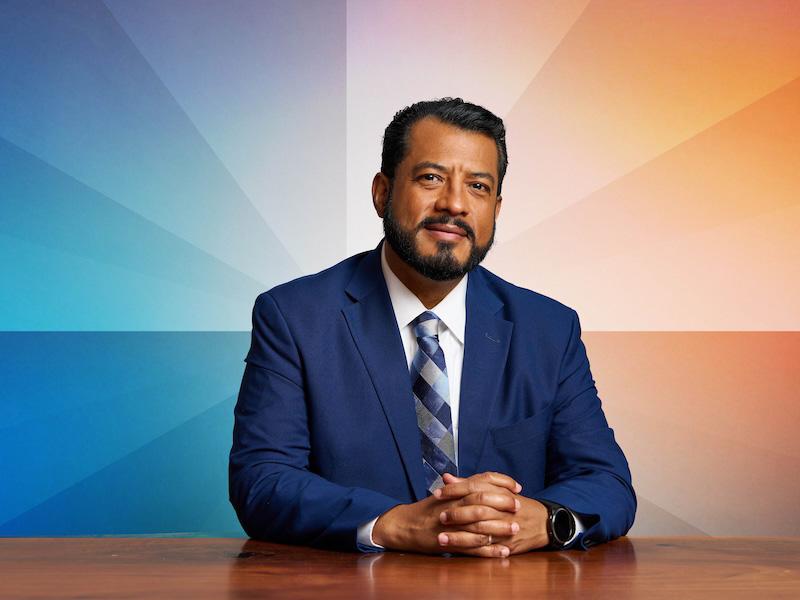Nobel Peace Prize Nominee Felix Maradiaga to join UVA and Lead International Campaign to End Arbitrary Detention

Authoritarian governments around the world are increasingly arresting and imprisoning people without due process to suppress democratic political opposition, but a new project at UVA is working to end the practice.
The University of Virginia's Democratic Futures Project (DFP) will bring the 2024 Nobel Peace Prize nominee Felix Maradiaga the university's research community the spring semester of this academic year. While at UVA, Maradiaga will continue to develop his End Arbitrary Detention Campaign. Drawing on research expertise from the College and Graduate School of Arts & Sciences and the UVA School of Law, the campaign aims to draft an international treaty that, with the support of the United Nations, could lead to a global ban on the use of what is known as arbitrary detention.
Maradiaga, a scholar and advocate for religious freedoms, democracy and human rights, was initially appointed as a DFP Fellow. The new funding will allow him to now take a leadership role in DFP, which brings together academics, advocates and policy makers to support inclusive, tolerant and equitable democracies around the world.
According to Stephen Parks, a UVA professor of writing and rhetoric and founder of the DFP, which is currently involved in advocacy projects in 10 different countries, gaining access to peer-reviewed, politically neutral research is essential to the work of democracy.
“I have been fortunate to work with international advocates in a variety of environments. One of the tools all the advocates tend to lack is access to peer-reviewed non-ideological research that demonstrates the validity of their arguments in the face of authoritarian misinformation campaigns,” Parks said. “The DFP blends the academic rigor of university research with the aspirations of politically persecuted populations across the globe struggling for basic democratic freedoms.”
Working with the DFP also gives Maradiaga – whose background is in law, political science and public administration – access to the expertise of UVA faculty in law, international politics and global affairs. It makes what would otherwise be an impossible project seem achievable, Parks said. Maradiaga will also teach classes in the Global Studies Program, allowing students to gain real world understanding of the value and possibilities of democracy globally.
For Maradiaga, the commitment of UVA faculty and students to advancing democratic values makes them ideal partners in facing the challenge of curbing the threat of arbitrary detention.
“I am thrilled to be joining the University of Virginia, where I will explore the most effective tactics that organized civil society and nonviolent movements can employ to reverse the global wave of autocracy and spark a fourth wave of democratization,” Maradiaga said. “Every university plays a fundamental role in defending democracy, and UVA is quickly becoming a hub for supporting pro-democracy and human rights efforts worldwide.”
Degrees in Doing Good
Involvement in the DFP and its End Arbitrary Detention Campaign is also providing UVA undergraduates in the humanities with unique opportunities to get involved in meaningful research, make professional connections that could lead to career opportunities after graduation, and use skills developed in the classroom to create effective political change.
“There is a whole world of non-profits, think tanks and government offices who are going to find the skills our students are learning valuable,” Parks said of the DFP, which has also benefitted from a $100,000 Jefferson Trust Grant that has helped bring other advocates like Maradiaga to Grounds. “Our project provides undergraduates with a wealth of opportunities to actively connect their academic careers to the defense and expansion of democracy. To learn from dedicated advocates that building a productive democratic culture isn’t about extremist purity but about negotiation, collaboration and creating coalitions.
“Work like this also offers a powerful lesson,” Parks added. “In such a bifurcated, hostile political environment, seeing people who have suffered horrifically at the hands of authoritarian governments continue to reach across divides and build broad coalitions for change is both a roadmap and a source of hope.”
We’re here to answer your questions! Contact us today.







